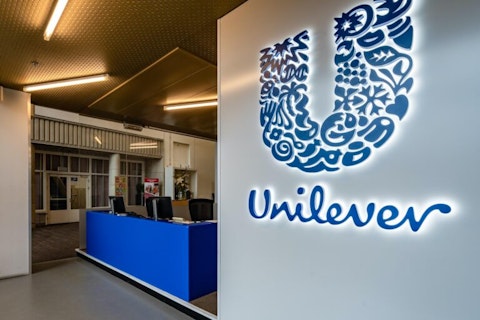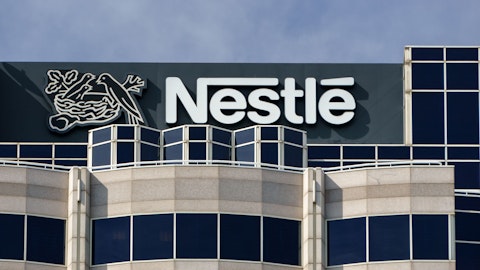In this article, we look at Unilever’s improved performance marked by a 25% ytd stock return and a return to positive volume growth owing to the strategies of the new CEO.
Unilever PLC (UL) is a strong player in fast-moving consumer goods, headquartered in London. The company has a diverse portfolio including baby food, bottled water, breakfast cereals, dairy products, beauty products, cleaning agents, healthcare and hygiene products, instant coffee, ice cream, pet food, soft drinks, pharmaceuticals, toothpaste, and tea. Unilever boasts that 3.4 billion people across 190 countries use their brands every day. The company has organized itself into 5 business groups namely: Beauty & Wellbeing, Home Care, Personal Care, Ice Cream, and Nutrition. The division allows the company to better assess the performance of each division and profitable brands.

Unilever has always given tough competition to competitors like Nestle and Procter & Gamble (PG) but a series of missteps by the previous CEO seemed to have eroded investor’s trust in the company’s shares. However, the new CEO Hein Schumacher, is proving to be a blooming light for the company’s overall performance as the sales grew for a third consecutive quarter. Strong gross margin improvements fueled investments resulting in increased profitability for the business and an increase in its share value. Unilever is focusing on increasing volumes and generating shareholder returns as its shares are relatively undervalued compared to Procter & Gamble.
Unilever is very similar to PG in terms of the businesses it is in, but it was trading at a large discount to PG because the market didn’t like the previous CEO. Now that there is a new CEO and the company is modestly growing its EPS by 5% annually, the valuation gap is closing. The stock is up 25% YTD, yet UL’s forward P/E is 4 points lower than PG’s.
While Unilever face challenges in China mainly because of the focus on the mainstream market, the company itself recognizes that there is significant growth potential if the company pivots towards the luxury segment. Additionally strengthening its presence in this area and continuing adapting to the evolving consumer behavior could unlock significant value, further boosting Unilever’s global performance.
UL is not on our list of the 31 Most Popular Stocks Among Hedge Funds. As per our database, 21 hedge fund portfolios held UL at the end of the first quarter which was 20 in the previous quarter. While we acknowledge the potential of UL as an investment, our conviction lies in the belief that some AI stocks hold greater promise for delivering higher returns, and doing so within a shorter timeframe. If you are looking for an AI stock that is as promising as UL but that trades at less than 5 times its earnings, check out our report about the cheapest AI stock.
READ NEXT: $30 Trillion Opportunity: 15 Best Humanoid Robot Stocks to Buy According to Morgan Stanley and Jim Cramer Says NVIDIA ‘Has Become A Wasteland’.
Disclosure: None. This article was originally published at Insider Monkey.





